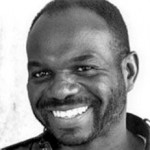Los Angelenos scanning their local gay newspapers in the past few weeks may have been surprised to read that “HIV is a gay disease.” That pronouncement was printed in an AIDS awareness ad, sponsored by the LA Gay and Lesbian Center and produced by Better World Advertising, that also urged gay men to “own it” and “end it.”
The applause came quickly. “They have finally advocated taking responsibility for the spread of AIDS by their lifestyle,” said one blogger in favor. “I think we’ve pussy-footed around this topic for too long,” Jonathan Warnock, an HIV negative gay New Yorker, told POZ.com.
But the booing was just as loud. “It is a throwback to the early days of the AIDS crisis,” raged another blog, “and does nothing to promote the practical considerations of sexual harm reduction.” And what about straight people? African Americans? Injection-drug users? Are they off the hook now? The ads “feed into denial and homophobia” in the black community, according to Cynthia Davis, director of HIV/AIDS Education and Outreach at LA’s Charles Drew University of Medicine and Science.
All of which is to say that the ads are doing just what their creators intended. “This is an effort to get people talking in Los Angeles,” says Darrel Cummings, chief of staff at the Center, which tested the campaign on several hundred people and went with it because they got strong reactions of all kinds. Indeed, Cummings is satisfied with Better World’s use of today’s heavy-hitting shockvertising methods. “It’s more and more difficult to get people’s attention,” explains Les Pappas, Better World’s president.
You may remember Pappas’ company from last year’s “HIV (not fabulous)” ads, which featured positive men visibly transformed by lipodystrophy and other treatment side effects (one man wears a diaper because his diarrhea is so bad). Better World’s ads are part of an HIV/AIDS advertising trend that also has included a French ad showing a man having sex with a scorpion (that never made it past the testing stage) and one earlier this year in Philadelphia that asked, “HIV: Have You Been Hit?” while depicting a black man in a rifle’s crosshairs. Supporters of these campaigns feel that the ends justify the means, that it’s OK to feed antigay or racist myths if there’s a chance of lowering high rates of HIV infection.
It won’t be easy to measure the precise impact of the LA Center’s campaign, if it endures. Activists talked this week about formally calling for its removal. Others want to organize a conference to debate the issues or demand a moratorium on HIV prevention advertising, hoping to move the focus toward other ways of stemming high rates of transmission among gay men. Just the kind of vibrant discussion the LA Center says it was after.
Advertisement
Advertisement
Advertisement






Comments
Comments